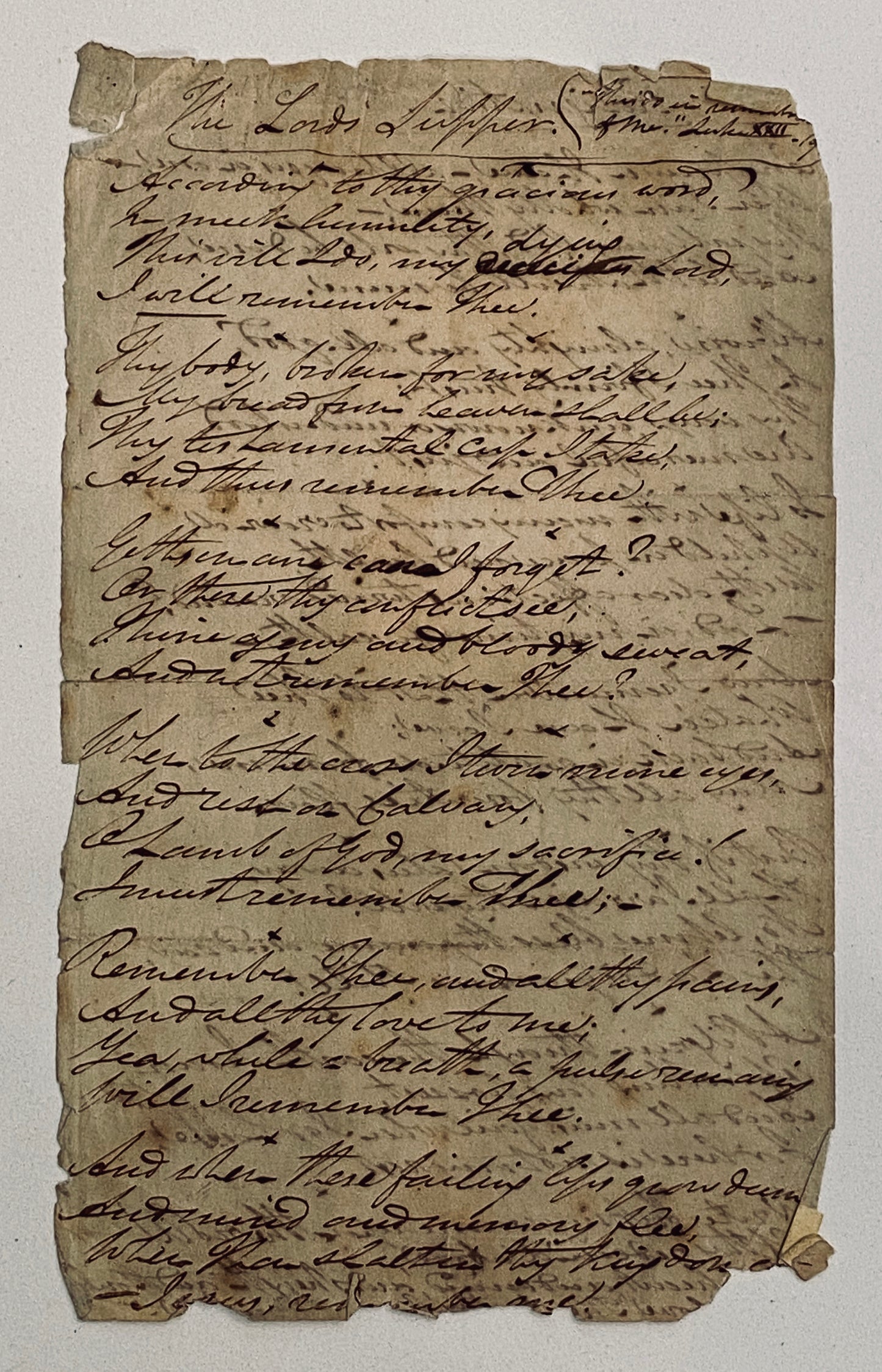Specs Fine Books
1825 JAMES MONTGOMERY. Original Manuscript Hymn, "According to Thy Gracious Word."
1825 JAMES MONTGOMERY. Original Manuscript Hymn, "According to Thy Gracious Word."
Couldn't load pickup availability
A wonderful, wonderful piece of hymn history. I have handled a fair number of Montgomery holographs hymns in his own hand over the years. Those are great. This though is the original manuscript for one of his most famous hymns . . . a true piece of historical hymnody.
James Montgomery [1771-1854] was the son of Moravian missionaries to the West Indies. A man of broad, evangelical mind, he was an early abolitionist, writing poems to work on concert with the efforts of Wilberforce, More, and Newton; advocated for nearly every Evangelical missionary agency; and worked tirelessly advocating for the children in factors, chimney sweeps, women in slavery, etc.,
"According to Thy Gracious Word" is probably only second to "Angels from the Realms of Glory" in terms of importance from the many hymns authored by Montgomery. In the generation succeeding Watts, Wesley, and Newton, he was probably the most influential, having hundreds of hymns published.
The present, published first in 1825, was issued as a hymn for the Lord's Supper initially [as notated here]. The present also contains a correction or two that reflect the final wording still used today, entirely in Montgomery's hand.
The Lord's Supper
According to thy gracious word,
in meek humility,
this will I do, my dying Lord,
I will remember thee.
Thy body, broken for my sake,
my bread from heav'n shall be;
thy testamental cup I take,
and thus remember thee.
Gethsemane can I forget?
Or there thy conflict see,
thine agony and bloody sweat,
and not remember thee?
When to the cross I turn mine eyes,
and rest on Calvary,
O Lamb of God, my sacrifice,
I must remember thee.
Remember thee, and all thy pains,
and all thy love to me:
when thou shalt in thy kingdom come,
Jesus, remember me.
And when these failing lips grow dumb,
and mind and memory flee,
When Thou shalt in Thy Kingdom come,
Jesus, remember me.
Chipped at extremities. The reverse bears an early version of "Thy Will be Done," here entitled, "Resignation." There are notable changes from this version to the final when published, including the combination of stanzas and substantial word choice alterations. Wonderful to have a pre-publication draft.
Share


